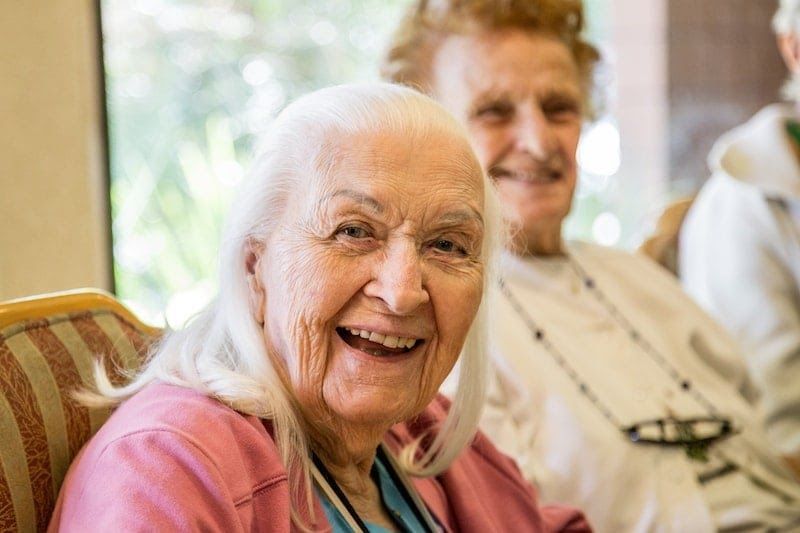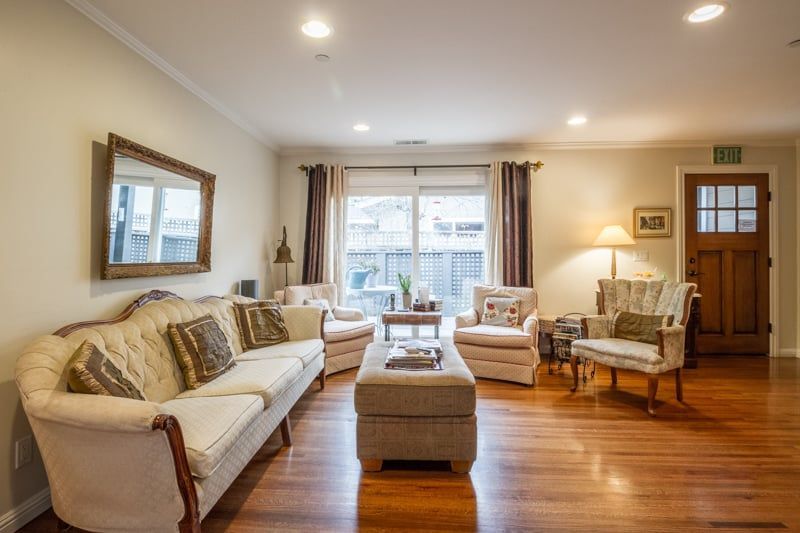
Respite Care: Your Definitive Guide for 2024
Find support and relief for both seniors and caregivers
If you're caring for - or even managing care - for an aging loved one, you've likely encountered some challenging days. Caregiving for family members is indeed an honor, allowing us to compassionately tend to the needs of our loved ones, but also a demanding journey that tests the limits of our resilience.
In today's fast-paced world where family caregiving can be mentally, physically, and emotionally draining, respite care stands as a beacon of hope and support. This critical service not only benefits the caregiver but also offers a valuable opportunity for the care recipient to socialize, engage in stimulating activities, and develop new skills in a supportive environment.
What is respite care?
Respite care is a specialized service designed to provide short-term, temporary relief to the primary caregiver, giving them a chance to rest, recharge, and tend to their personal needs and responsibilities. Whether it's for a few hours, a few days, or longer, respite care offers is a lifeline for caregivers.
Respite care can include in-home care, adult day centers, and residential care facilities. During respite care, care recipients can benefit from a secure, engaging, and supportive environment, while their caregiver takes a well-deserved break. Ultimately, respite care plays a crucial role in promoting a healthier and more sustainable caregiving experience, reducing caregiver stress and burnout, and enhancing the overall quality of life for both caregivers and their loved ones.
Avoiding caregiver burnout
Respite care provides benefits for both the caregiver and the care recipient. While most caregivers are conditioned to put their own needs last, it's important to recognize the signs of potential caregiver burnout and take advantage of what respite care offers.
Common signs of caregiver burnout include increased feelings of chronic stress, irritability, exhaustion, and even resentment towards their caregiving responsibilities. After all between managing medical appointments and other caregiving duties, there often isn't much time left in the day for oneself. If the caregiver's mental, emotional, and physical health starts to decline, it's a healthy warning sign that something needs to change.
Many family caregivers also have challenges with personal relationships or managing other family responsibilities - so it's essential to acknowledge that seeking respite care can help restore a sense of balance.
Take the quiz
Worried you're headed for caregiver burnout?
Types of respite care
There are many types of respite care services for elderly people. They are meant to be a short-term solution for both the caregiver and senior.
- Temporary stays at senior living: Short-term stays at a senior care facility can be a great option when caregivers need to travel out of town. Seniors are given access to the same amenities as full-time residents such as meals, social activities, and transportation. Temporary stays are also a great way to give seniors a preview of senior living and are also used by many seniors to try an assisted living community before moving in long-term.
- Respite care at home: Respite care at home is a relief for families who are home-bound with elderly or sick loved ones. Providers can come to the house, acting as companions and ensuring that no harm comes to your loved ones while you're away. Home health aides may be able to do more, like help bathe, groom, fix meals, do laundry, and clean.
- Short-term stays in assisted living: Approximately 60% of assisted living communities offer short-term stays. Many times, you can find communities willing to take your elderly loved one for a weekend or even a week. This comes without further obligation to sign on for other services. You would pay for only the day, week, or weekend of care needed in a fully furnished room. In addition, your elderly loved one would be able to participate in social gatherings, meals, and special events that may be going on during their stay. Pro tip: respite care is also a great way to "try out" assisted living if your loved one has been resistant!
- Short-term home care: Hiring a home care agency is another way to get respite care. Some agencies have four-hour per day minimums. However, it is becoming more common for agencies to offer services with no hourly minimum. In-home respite caregivers provide a great solution for regularly scheduled breaks for primary caregivers. If your loved one requires medical attention and medical monitoring, skilled nursing care is also available through in-home respite care on a short-term regular basis.
- Adult day care services programs: Attending an adult day center provides the care recipient with social time and activities as well as a break for the caregiver. These programs are designed for seniors who can no longer manage life independently or feel lonely. Research on adult day care centers programs for older adults with dementia has found improvements in the health and well-being of both the caregiver and care recipient. Most participants attend programs for full days and about half attend five days a week. There are also options to attend for a few hours each day. Adult day centers offer several programs to promote socialization and well-being.
Respite care facilities
You may think of assisted living facilities as apartment complexes for seniors who can’t live on their own anymore. But some offer short-term stays for respite care, which is also called residential respite care, or a few weeks, in the event that you need to take a trip and your loved one needs someone else to be there with them at all times.
Short-term assisted living allows you to enjoy time away from home without worrying about leaving elderly family members alone. It can also help if your loved one needs more care than you can easily manage at home as they recover from injury or illness.

Respite services: what's included?
Respite care providers offer a range of services, which can be catered to fit the medical needs of each client. Whether your loved one is in an adult day center, has in home support, or is staying in an assisted living community, services might include:
- Medication assistance: Respite care providers can help with daily care reminders to take medication and other basic medical care..
- Companionship and supervision: If you worry about leaving your spouse or loved one at home alone, respite care can provide them with supervision and companion services. This type of service is especially helpful for those who function well but still need someone to look after them occasionally so they don't feel neglected while their caregiver takes time off work.
- Household tasks: In-home respite caregivers often help with simple household chores such as laundry, grocery shopping, and meal preparation.
- Support for ADLs: Activities of daily living are self-care activities necessary for living independently, such as bathing or getting dressed. Respite care workers provide help with ADLs as a standard service for respite care.
- Transportation needs: Most providers will take your loved one to and from doctor appointments as well as any other traveling they may need to do.
- Meals: Respite care providers can prepare meals and make sure your loved one has eaten.
- Social interaction: Since respite care provides one-on-one attention, your loved one will be fully taken care of without any wait.
What are the benefits of respite care services?
Respite care for elderly parents can be a game-changer for both caregivers and the seniors they are caring for. The benefits of respite programs for the elderly vary depending on each person's own needs but most caregivers would share that it's:
- A much-deserved break for the caregiver so they don’t end up with caregiver burnout
- Inproved mental health and less stress on oneself or loved one
- More quality time together after your respite break
- Relief from guilt about not being there all day every day which may lead to burnout over long periods
- A flexible option for senior care
- Freedom from feeling tied down by responsibilities in your own home when you need some “me-time"
How much does respite care cost?
The cost of respite care can vary significantly depending on the type of service, duration, location, and the care recipient's needs.
- In-home respite care services tend to be charged on an hourly basis and can range from $15 to $50 per hour, with specialized care for individuals with specific medical conditions potentially costing more. The national average is $27 per hour.
- Adult day care centers usually have daily rates, averaging between $60 to $120 per day, offering a more cost-effective solution for full-day support. The national average is $1690 per month, or about $55 per hour.
- Residential respite care costs can be higher, with prices ranging from $150 to $300 per day, depending on the facility and level of care required.

How to pay for respite care
It's important to note that some insurance plans, including long-term care policies and Medicaid, may cover a portion of respite care costs, while other financial assistance programs and sliding-scale fees can also help reduce the expenses for eligible families. Here are a few examples of how to pay for respite care:
- Most respite care is private pay. Seniors with long-term care insurance plans may have respite care benefits.
- Medicare only covers respite care under the hospice care benefits.
- Medicaid doesn’t directly cover respite care but some states can use local funding to help cover the costs.
- Specific organizations such as the Alzheimer’s Association may provide funding for respite care.
- Social Security Insurance (SSI) will cover some care for qualified individuals.
- Veterans Administration will cover inpatient respite care in a Veterans hospital up to 30 days for qualified Veterans.
How to find a respite care provider
If you visit your local department on aging you will find several support programs, including the Family Caregiver Support Program (FCSP). Many nonprofit organizations offer respite services for fees including in-home assistance, or adult day services. Many volunteer services are also available in many communities.
Nothing is more important than taking care of both yourself and the one you love. Don't wait until your health fails or you find yourself overwhelmed with exhaustion to realize that perhaps it's time for a break, respite services are out there as well as support groups where caregivers can relate on difficult days. When in need, reach out.
- Eldercare Locator: Connects seniors who are 60+ and their caregivers with the local Area Agency on Aging’s Family Caregiver Support Program, which provides respite assistance, support groups, and other services for caregivers. 800-677-1116 (toll-free) eldercarelocator@n4a.org https://eldercare.acl.gov
- National Adult Day Services Association (NADSA): NADSA is a membership organization with a directory of adult day services across the country.
- ARCH National Respite Network: The ARCH National Respite Network is a service to help caregivers and professionals locate respite services in their community.
A reminder for caregivers everywhere
Caregiving is hard. And in a busy world, it's so important for caregivers to take time to rest and recharge. Respite care is an indispensable support system for caregivers, offering a much-needed break from their responsibilities while ensuring their loved ones continue receiving the necessary care and attention.
Arthur Bretschneider is CEO and Co-Founder of Seniorly. As a third generation leader in the senior living industry, Arthur brings both deep compassion and a wealth of practical experience to his work at Seniorly. Arthur holds an MBA from Haas School of Business and has been featured in the New York Times and Forbes Magazine as a thought leader in the senior living space. Arthur is a passionate and vocal advocate for improving the lives of older adults through community, and believes strongly that structured senior living environments can positively impact the aging experience.
To learn more about Seniorly's editorial guidelines, click here.
